F20 ART 128D Experimental Photography: Cameraless to Polaroid, Form to Content
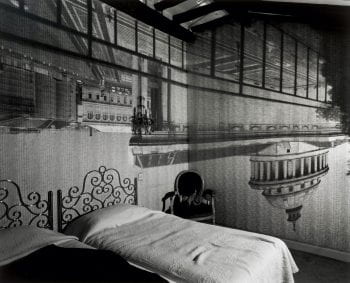
Abelardo Morell, Camera Obscura Image of the Pantheon in the Hotel des Grandes Hommes, 1990
These days everyone is a photographer, right? But how does that image, snapped with your smartphone, arrive on your screen? As technology marches forward we have images literally at our fingertips yet the actual process of producing the picture is, ironically, more elusive. In this course students will dive into experimental processes and examine how physically making the picture can affect the content of that picture. Video of Professor Heather Bennett discussing her class.
Taught by Heather Bennett T/TH 8:30am-11:20am
F20 ART 116T Printmaking for Architecture and Art Students
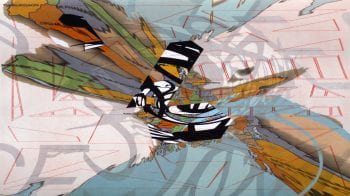
Joyce&Jose
This is a course that will focus on monotype mixed media printmaking using both hand printing and digital print processes. The class is designed to be responsive to current issues with a focus on contemporary printmaking practices and various ideas about dissemination in the age of social media. The class will include an examination of historical examples of diverse global practices; prints made in periods of uncertainty, disruption, war, and disaster; and speculative projects by architects such as Superstudio, Zaha Hadid Architects and Archigram. Students will be expected to create a series of work with a conceptual framework developing a personal visual language.
Taught by Carmon Colangelo M/W 8:30am-11:20am
F10 ART 438X Semiotics Studio: Designing Signs and Symbols
Are you interested in how things mean what they mean? Do you like making but want to 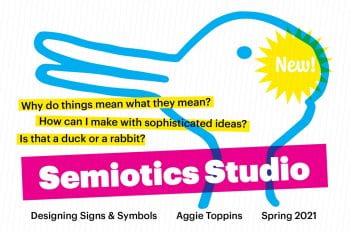 sharpen your concepts? Do you want to unpack ideas like truth and authenticity? Then take Semiotics Studio, a deep dive into the world of signs, symbols, codes, and mythologies. Signs are any stimulus to which we can attribute meaning. Signs are the building blocks of visual language and they have considerable power. This course will make big questions about meaning applicable to design in everyday life. Elevate your mind and your portfolio!
sharpen your concepts? Do you want to unpack ideas like truth and authenticity? Then take Semiotics Studio, a deep dive into the world of signs, symbols, codes, and mythologies. Signs are any stimulus to which we can attribute meaning. Signs are the building blocks of visual language and they have considerable power. This course will make big questions about meaning applicable to design in everyday life. Elevate your mind and your portfolio!
Taught by Aggie Toppins M/W 1:00pm-3:50pm
F20 ART 234A Advanced Drawing: Affective Stills and the Moving Image
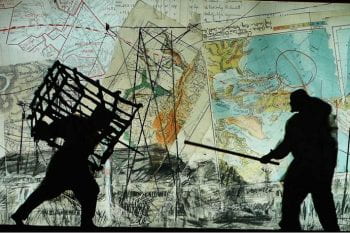
William Kentridge, video still from Notes Towards a Model Opera, 2015
This experimental studio class will explore drawing as an expanded set of practices and indeterminacy as a concept and an organizing principle that binds static, sequential and moving images. Students will explore these by way of a series of assignments, selected readings and oblique strategies, a card-based method developed by musician/artist Brian Eno and multimedia artist Peter Schmidt, for promoting collaboration and openended processes. Discussions will include examples from performance, cinema, the intersection of art + science, anamorphic drawings, drawings for projection, and projects involving moving pictures and affective stills. Video of Professor Olynyk discussing her class.
Taught by Patricia Olynyk M/W 8:30am-11:20am
F20 ART 244A Animation Tools and Methods
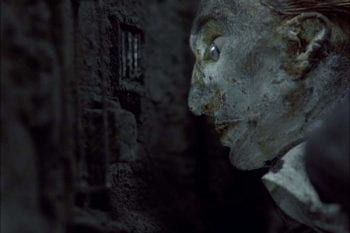
street of crocodiles by brothers quay
Animation Tools and Methods introduces a range of digital and analog production techniques for the practice of animation. This course will also present fundamental concepts and issues that define this creative form.
Taught by Tim Portlock T/TH 4:00pm-6:50pm
F20 ART 396B Making Things That Function
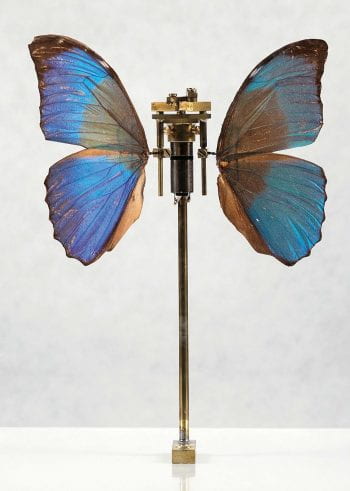
Rebecca Horn, Butter y 2006
The meaning of function will be debated so that students develop a definition based on their own values. Highly exaggerated, specific, or experimental works will be encouraged. Techniques for metal fabrication, simple woodworking, and mold-making will be taught in class as needed. This course will benefit designers, artists, architects, engineers and will explore the intersections of design and making between these fields. Students will design and make functional objects that engage the body with intention. Video of Professor Stouffer discussing her class.
Taught by Lindsey Stouffer M/W 8:30am-11:20am
F20 ART 327X Color Systems
Color Systems is a sustained investigation of color. Students will study how color is affected by light, 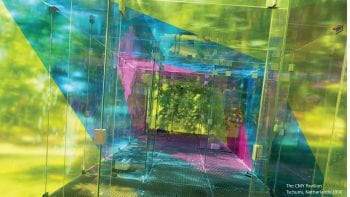 by space, by arrangement, by culture and commerce, and by our own psychology. The course deepens student understanding of color’s complexity and pervasiveness as a fundamental element of our shared visual culture. The online course structure is a studio/seminar hybrid, with experimental project outcomes that are both research and materially based. Studio work is open to multi-dimensional solutions, and includes media such as light (natural and screen-based), inherent or found color, pigment, as well as self-selected materials. The course will begin with directed skill building and grow increasingly concept-driven and self-directed. Video of Professor Cheryl Wassenaar discussing her class.
by space, by arrangement, by culture and commerce, and by our own psychology. The course deepens student understanding of color’s complexity and pervasiveness as a fundamental element of our shared visual culture. The online course structure is a studio/seminar hybrid, with experimental project outcomes that are both research and materially based. Studio work is open to multi-dimensional solutions, and includes media such as light (natural and screen-based), inherent or found color, pigment, as well as self-selected materials. The course will begin with directed skill building and grow increasingly concept-driven and self-directed. Video of Professor Cheryl Wassenaar discussing her class.
Taught by Cheryl Wassenaar M/W 11:30am-12:50pm
F20 ART 252B Performing Solitude
Working with your own performing self as a material in your art – within domestic or landscape environment – in this studio, students will be invited to reconsider what performance art
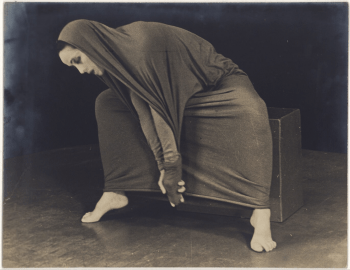
Martha Graham in Lamentation n. 20, 1930
means in the global age of post-pandemic and post-digital universe, in which the biological environment, including nature and our own body as part of it, continues to enact gestures and make aesthetic statements set against global histories. Performing Solitude invites all students from Sam Fox School, as well as from Film + Media Studies, Performing Arts, Music and across the University, who are interested in creating interdisciplinary works that merge performance art with other forms of expression, including sculptural, digital, musical, acoustic, textual, drawing-based, dance-based, photographic, cinematic, and architectural. Video of Professor Weiss discussing her class.
Visit a related class blog for more information.
Taught by Monika Weiss T/TH 8:30am-11:20am
F10 ART 318Q Art Practice: A Sense of Place or Understanding Place Through Photography
This course explores the concept of place- or ‘a sense of place’ through the frameworks of 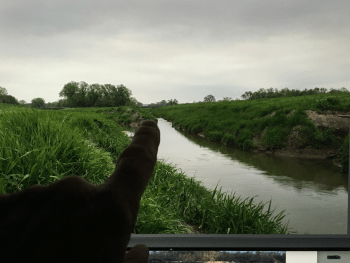 photography, history and narrative. How do we define “place”, and belonging; and how are these definitions attached to cultural, political, social and geographic implications? Might new definitions emerge as we contend with established expectations alongside our contemporary conditions? Video of Professor Colten discussing her class.
photography, history and narrative. How do we define “place”, and belonging; and how are these definitions attached to cultural, political, social and geographic implications? Might new definitions emerge as we contend with established expectations alongside our contemporary conditions? Video of Professor Colten discussing her class.
Taught by Jennifer Colten M/W 1:00pm-3:50pm
F20 ART 228E Making Documentaries in the Time of Covid
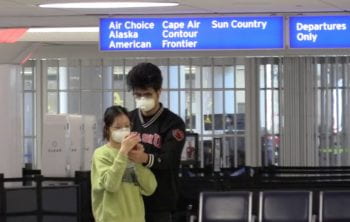
“Caught in Between,” Steve Ye, video still, 2020
Covid-19 has impacted all of our lives. Create documentaries that chronicle your experiences and reflections about the struggles, hardships and funny moments you’ve faced while adjusting to taking safety measures and enduring lockdowns. Ask the questions that probe deep into what it means to live through a worldwide pandemic. Video of Professor Denise Ward Brown discussing her class.
Taught by Denise Ward-Brown M/W 4:00pm-6:50pm
F10 ART 330D Multimedia Design: Time/Sound/Space
As technology advances, the line between digital and physical spaces is increasingly blurred. 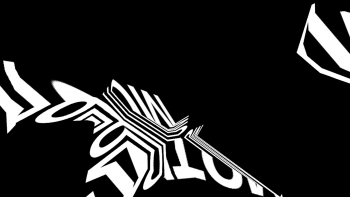 Through experimentation, students will investigate these spaces in multiple dimensions. students consider how experiences can be translated into a time-based media. Students will make multimedia projects that orient, educate or delight an audience. Using both digital and analog methodologies, students will capture, generate, and manipulate audiovisual material.
Through experimentation, students will investigate these spaces in multiple dimensions. students consider how experiences can be translated into a time-based media. Students will make multimedia projects that orient, educate or delight an audience. Using both digital and analog methodologies, students will capture, generate, and manipulate audiovisual material.
Taught by Amy Auman M/W 1:00pm-3:50pm
F10 ART 338Z Global Topics in Visual Communications
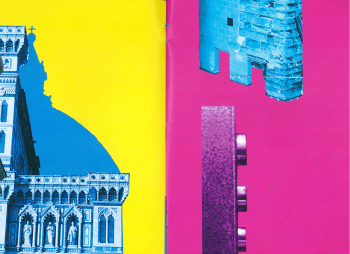 Students will work with internationally-based faculty in short modules in which lectures and prompts will highlight the unique qualities of cities and cultures around the world. Students will reflect on the specificity of place in ongoing sketchbook prompts. For each module, students will make a short publication that synthesizes the content of that module with their own developing studio interests.
Students will work with internationally-based faculty in short modules in which lectures and prompts will highlight the unique qualities of cities and cultures around the world. Students will reflect on the specificity of place in ongoing sketchbook prompts. For each module, students will make a short publication that synthesizes the content of that module with their own developing studio interests.
Taught by Aggie Toppins and Courtney Custard -Module I TH 6:00pm-8:50pm/Module II T/TH 8:30am-11:20am
F10 ART 332J UX Research Methods for Design
User experience research can make or break a design. It is an essential way to better understand whether, and how, a given design meets intended needs and outcomes. This 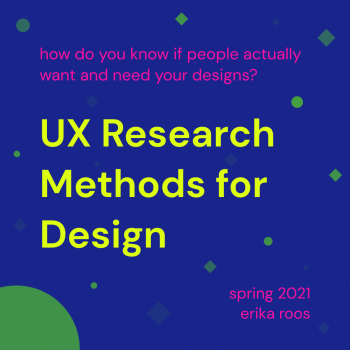 studio course explores the foundations of user research, appropriate for digital and analog products. Through projects, discussions, and readings, students will build an understanding of the role of research in interface design. Students will practice research methods including interviews, surveys, contextual inquiry, peer analysis, and heat mapping. Students will create artifacts that contextualize research within the broader UX design process, including personas, journey maps, user flows, and low-fidelity prototypes.
studio course explores the foundations of user research, appropriate for digital and analog products. Through projects, discussions, and readings, students will build an understanding of the role of research in interface design. Students will practice research methods including interviews, surveys, contextual inquiry, peer analysis, and heat mapping. Students will create artifacts that contextualize research within the broader UX design process, including personas, journey maps, user flows, and low-fidelity prototypes.
Taught by Erika Roos M/W 1:00pm-3:50pm
F10 ART 314N Sculpture: Art Practice-Itinerant Artworks
Who said you can’t take it with you?
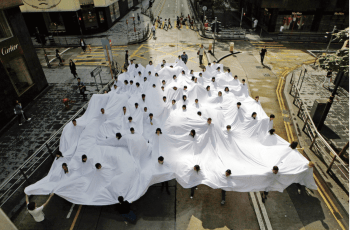
A street performance of Lygia Pape’s Divisor (1968-2013) was held in 2013 Central Hong Kong for Para Site’s exhibition “A Journal of the Plague Year.” Photo: Para Site
Itinerant Artworks is a class where students create work, in any medium, that is built for travel (not speed) and can be set up, knocked down, or installed in a variety of locations, at a moment’s notice. Students will document their work at a range of sites throughout St Louis. For the final project, the class will stage an “off the grid” outdoor exhibition in Forrest Park.
Taught by Jack Risley T/TH 1:00pm-3:50pm
New Seminars for Spring 2021
Two new Seminars are also featured for Spring 2021. These seminars will run consecutively each for 6 weeks on Friday afternoons. Ideally, students will enroll in both.
F20 ART 108A You Are Here: Engaging St. Louis’s Racial History Through Site + Story
“You are Here” references orientation, discovery, otherness and place, and provokes us to 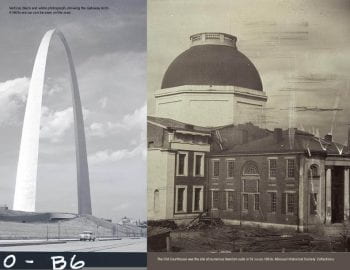 consider how designers, artists and architects engage the city. Learning about St. Louis’s complex history of race and racial injustice through site and story-based explorations, students in this 1.5 credit course will engage the city’s landscape, history, systems, culture, and identity, while wrestling with fundamental questions of power, positionality and perspective.
consider how designers, artists and architects engage the city. Learning about St. Louis’s complex history of race and racial injustice through site and story-based explorations, students in this 1.5 credit course will engage the city’s landscape, history, systems, culture, and identity, while wrestling with fundamental questions of power, positionality and perspective.
Taught by Penina Acayo Laker, Patty Heyda, Heidi Kolk Fridays 1:00pm-3:50pm (1/29-3/12)
F20 ART 108B Engaging Community: Understanding the Basics
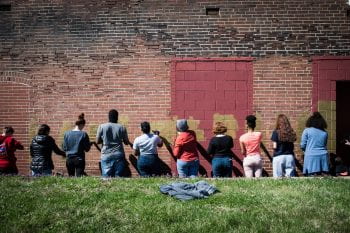 What does it mean to engage in community as a creative practitioner? Community engagement must be grounded in authentic relationship building, and an ability to understand and act within the historic context and systems that impact communities. In this course, we will practice the skills of listening, observation, and reflection as we cultivate mindsets that support community self-determination and meaningful change. We recommend pairing with the course “Engaging St. Louis: Sites, Stories, and the Struggle for Racial Justice.”
What does it mean to engage in community as a creative practitioner? Community engagement must be grounded in authentic relationship building, and an ability to understand and act within the historic context and systems that impact communities. In this course, we will practice the skills of listening, observation, and reflection as we cultivate mindsets that support community self-determination and meaningful change. We recommend pairing with the course “Engaging St. Louis: Sites, Stories, and the Struggle for Racial Justice.”
Taught by Liz Kramer, Associate Director, Office for Socially Engaged Practice Fridays 1:00pm-3:50pm (3/19-4/30)
Additional course descriptions can be found online at WU Course Listings.